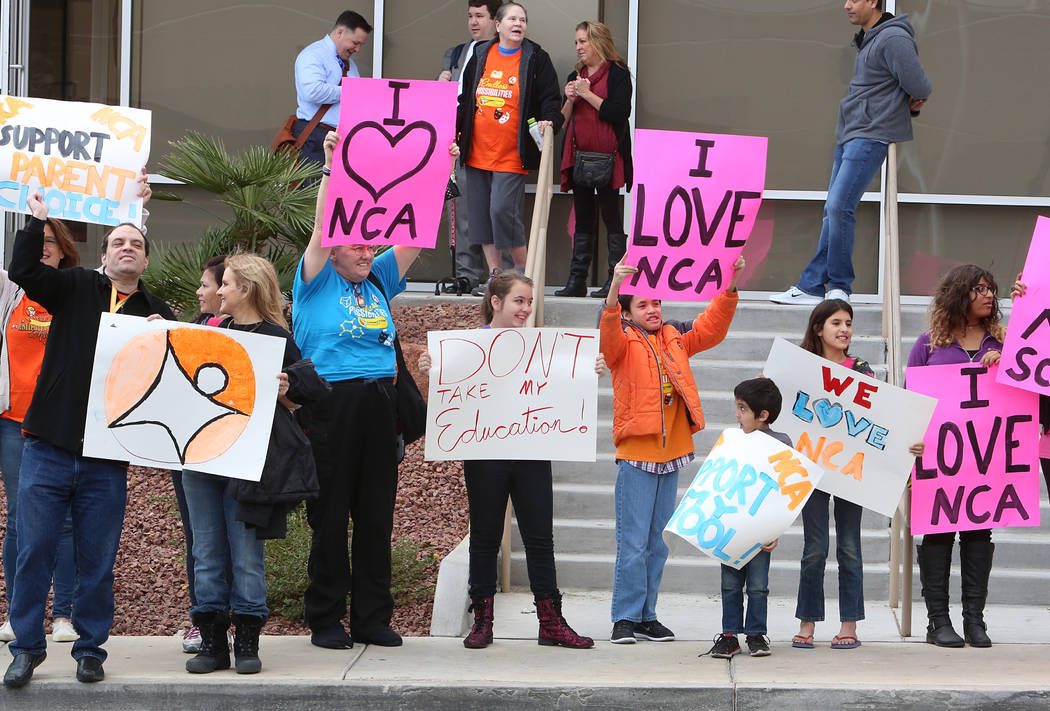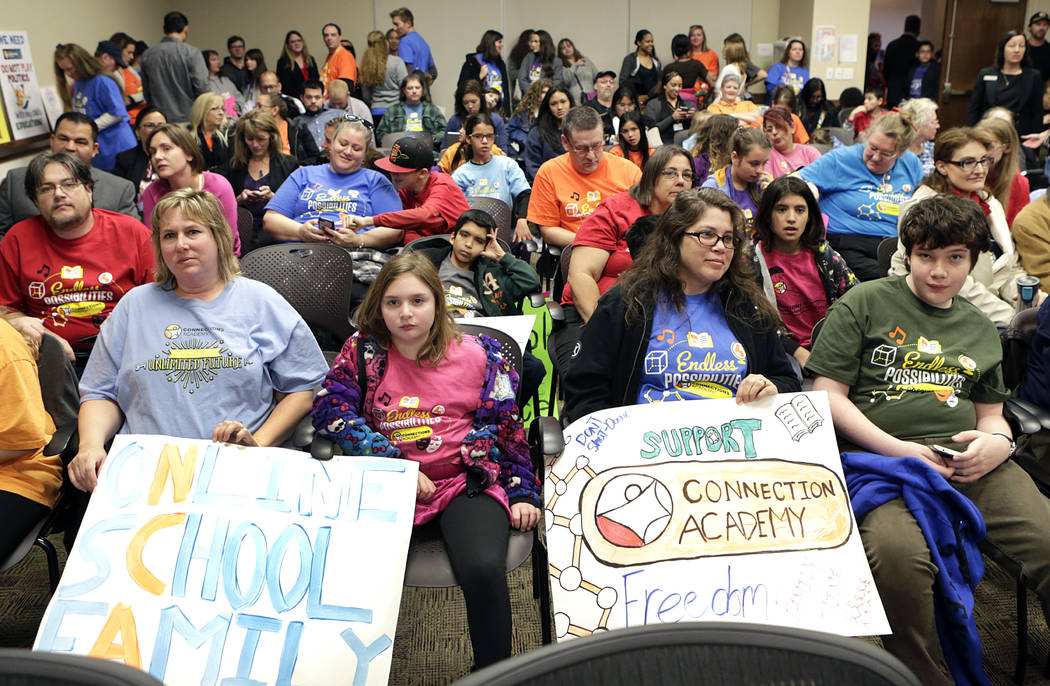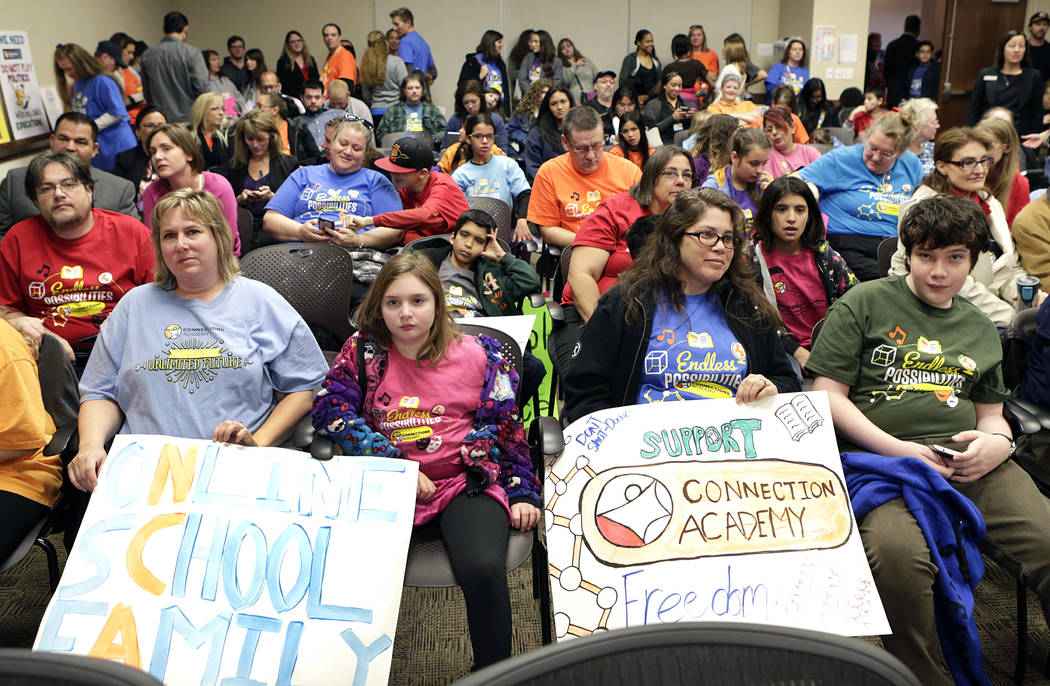Parents sue Nevada regulator in bid to save online charter school
Parents and students are suing the State Public Charter School Authority in an attempt to overturn its decision to close an online charter school over performance issues.
The lawsuit filed by Nevada Connections Academy (NCA) and three families on behalf of their minor students accuses the charter authority of breaching its contract with the school by not renewing its contract despite NCA’s improved graduation rates.
NCA came to an agreement with the charter authority in 2017 that the school would improve its graduation rates in order to stave off an initial threat of closure, a metric the school says it not only met but exceeded.
But the authority’s board members made the nonrenewal decision at a Jan. 31 meeting upon the recommendations of a staff report, which stated graduation rates were just one factor of many that went into a school’s renewal evaluation, none more important than the academic performance of students. The report found that NCA students were not performing on par with other students in Nevada, or other charter students under the charter board’s authority.
Executive Director Rebecca Feiden said in a statement that the charter authority is charged with holding schools accountable, and while NCA had achieved established targets for graduation rate, “performance in almost every other metric remains poor.”
“Ultimately, the SPCSA has a responsibility to hold schools accountable for results and, unfortunately, Nevada Connections Academy was not producing results for far too many students,” Feiden said.
NCA’s lawsuit further accuses the authority of violating open meeting laws by failing to post adequate notice of an overflow room for the Jan. 31 meeting that saw dozens of families speak in support of the school — a move that NCA attorney Laura Granier said amounted to depriving the public of its legal rights. Feiden declined to comment on this issue.
Granier added that as in 2016, when the school first faced a closure, the charter authority failed to take into consideration the characteristics of NCA’s student body, which includes students who have attended multiple traditional schools as well as those who enroll and are credit deficient.
“They should take a careful, thoughtful look at the data,” Granier said.
The lawsuit asks the court to enjoin the charter authority from proceeding with the nonrenewal and to require it to follow the terms of the charter contract.
Since the charter authority’s decision was handed down, the school has been operating as normal, under the assumption that it will not close, according to Executive Director Chris McBride.
“We’ve told our families we’re exploring all legal options to keep the school open,” McBride said. “We know we’re a great option, and the last, best option for many students.”



















